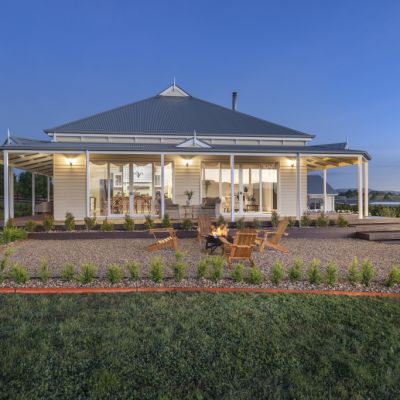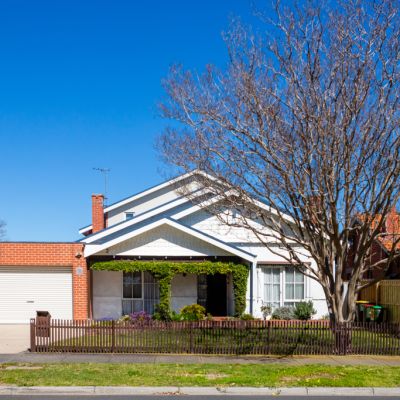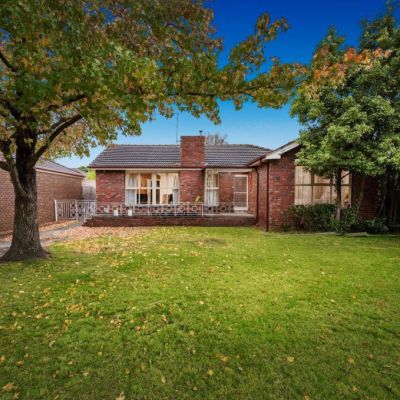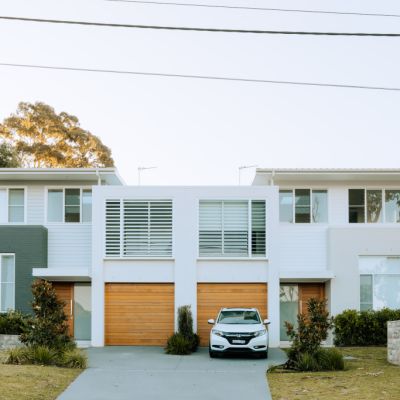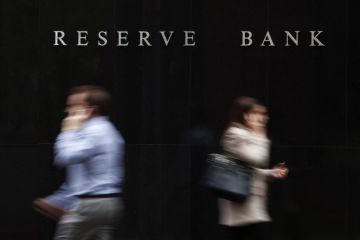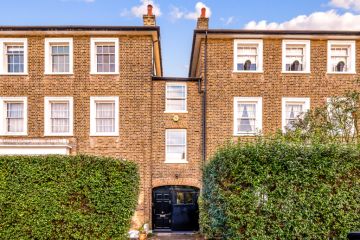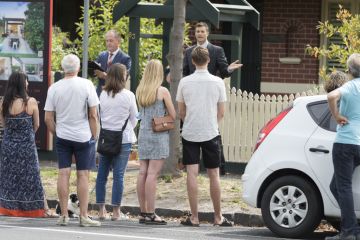Is now a good time to buy your first home? The number of first-home buyers in the market has nearly halved
Half as many first-home buyers are circling the market in search of a place to call their own right now, which means it could be a great time to pounce for those with a deposit.
The latest ABS Lending Indicators data reveals that the number of first-home buyers fell 3.2 per cent to 8576, a near halving of the peak level seen in 2021. All major states saw weaker buyer demand, with Victoria down the most at -4.1 per cent.
The drop in demand from first-timers in the property market means there’s less competition right now.
This coincides with falling property prices. The Domain End of Year Wrap 2022 shows house prices nationally have fallen 4.9 per cent from the March 2022 price peak, down about $53,000.
In some capital cities, prices have fallen even further; Sydney is down 8.3 per cent, Melbourne and Canberra down 6 per cent and Brisbane down 4.3 per cent.
The evolving real estate market comes amid a deterioration in rental affordability and a continual push into regional areas as buyers search out more affordable areas beyond metropolitan areas.
When interest rates stop rising, then the impulse to buy should become positive, BIS Oxford Economics senior economist Maree Kilroy says.
“The current fall in property prices reduces the deposit hurdle, but rising interest rates are making repayments more expensive,” Kilroy says.
Some first-home buyers are being pushed out of their buying goal amid consecutive rate rises, which have diminished their borrowing power, Domain Home Loan’s Natalie Abel says.
“Some buyers have lowered their price range and are scoping different areas to secure a home they can see themselves living in, which might be quite different to their carefully laid plans of 12 months ago,” Abel says.
Others, she explains, will be fearful of the rates continuing to rise, and their first home purchase will be unattainable for even longer. These buyers are scared of the market not correcting.
Meanwhile, higher-income earners willing to accept the risk are now watching house prices drop and rates go up and are holding back because they feel the market may correct and homes will be cheaper down the track.
“These individuals have a healthy deposit saved and a good income but are holding out for now,” Abel says.
But there is a range of government initiatives intended to lower the entry hurdle to property ownership, Kilroy says.
“There are now 35,000 places available this financial year under the First Home Guarantee, which provides access to a minimum deposit of 5 per cent and avoids Lenders Mortgage Insurance.”
There are also a number of state-based initiatives in the market, so check your local state grants and concessions to see what you might be eligible for.
For example, in NSW, there’s the newly introduced First Home Buyer Choice initiative, which allows first-home buyers the choice of opting for an ongoing property tax instead of an upfront stamp duty charge from January 16, 2023.
The scheme applies to properties valued up to $1.5 million. For the purchase of vacant land for the construction of a new home, the price cap on the scheme is $800,000.
The significant drop in competition among first-home buyers may not last into 2023, particularly once interest rates stop rising, according to Dr Nicola Powell, chief of research and economics at Domain.
She has tipped entry-priced houses and units to outperform their more expensive counterparts next year.
“Overall, entry-priced houses and units will hold firmer, particularly in our most expensive capital cities,” Powell says.
“This will be driven by the affordability barriers of purchasing, first-home buyer incentives and deteriorating borrowing capacity steering demand to more affordable options.”
We recommend
We thought you might like
States
Capital Cities
Capital Cities - Rentals
Popular Areas
Allhomes
More
